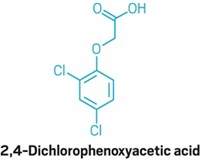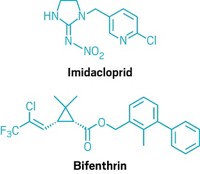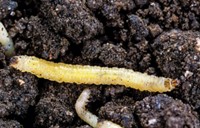Advertisement
Grab your lab coat. Let's get started
Welcome!
Welcome!
Create an account below to get 6 C&EN articles per month, receive newsletters and more - all free.
It seems this is your first time logging in online. Please enter the following information to continue.
As an ACS member you automatically get access to this site. All we need is few more details to create your reading experience.
Not you? Sign in with a different account.
Not you? Sign in with a different account.
ERROR 1
ERROR 1
ERROR 2
ERROR 2
ERROR 2
ERROR 2
ERROR 2
Password and Confirm password must match.
If you have an ACS member number, please enter it here so we can link this account to your membership. (optional)
ERROR 2
ACS values your privacy. By submitting your information, you are gaining access to C&EN and subscribing to our weekly newsletter. We use the information you provide to make your reading experience better, and we will never sell your data to third party members.
Biological Chemistry
Detox Lets Crops Take Herbicide
Thanks to an evolved enzyme, engineered crops tolerate glyphosate
by Amanda Yarnell
May 24, 2004
| A version of this story appeared in
Volume 82, Issue 21

Crops engineered to make an enzyme capable of N-acetylating the widely used, environmentally friendly herbicide glyphosate--a modification that renders glyphosate nontoxic--are resistant to the weed killer, according to a new study. If commercialized, this novel strategy could spark competition and further innovation in the lucrative market for glyphosate-tolerant crops, worth nearly $2.2 billion in 2002.
The world's top-selling herbicide, glyphosate--originally trademarked by Monsanto as Roundup--kills weeds by inhibiting an enzyme that plants rely on to biosynthesize the aromatic amino acids they require for growth. Glyphosate is widely used in combination with Monsanto-brand Roundup Ready crops, which are engineered to contain a glyphosate-immune microbial version of this enzyme. This allows farmers to spray entire fields with the herbicide, killing the weeds but not their crops.

Now, plant scientist Linda A. Castle of Redwood City, Calif.-based Verdia and her colleagues at Verdia and Pioneer Hi-Bred of Johnston, Iowa, have developed what they believe is a promising alternative strategy for creating glyphosate-tolerant crops [Science, 304, 1151 (2004)]. Instead of relying on an enzyme that isn't susceptible to glyphosate inhibition, Castle's team created transgenic plants that can cleanse themselves of glyphosate by turning the herbicide into N-acetylglyphosate, which is harmless to the plant.
Castle's team screened only a few hundred common microbes before unearthing a family of enzymes from a soil bacterium capable of weakly catalyzing glyphosate acetylation. They then fragmented and recombined these enzymes' genetic sequences to create a better performing variant. After repeating this DNA shuffling process nearly a dozen times--and even including some additional genetic diversity from different but related microbial nzymes--the team managed to create a glyphosate N-acetyltransferase that's nearly 10,000 times more efficient than the original enzymes. Corn containing this optimized enzyme survives glyphosate applications six times the normal dose, Castle says.
Initial data suggest that although N-acetylglyphosate sticks around in these plants, it is no more toxic to the environment than glyphosate, she adds. Stephen O. Duke of USDA's Agricultural Research Service predicts, "Provided no toxicological problems are found with this metabolite, this achievement has good potential for commercial success." Verdia is currently evaluating the commercial potential of the trait in both corn and cotton, but products are still years off, Castle notes.





Join the conversation
Contact the reporter
Submit a Letter to the Editor for publication
Engage with us on Twitter